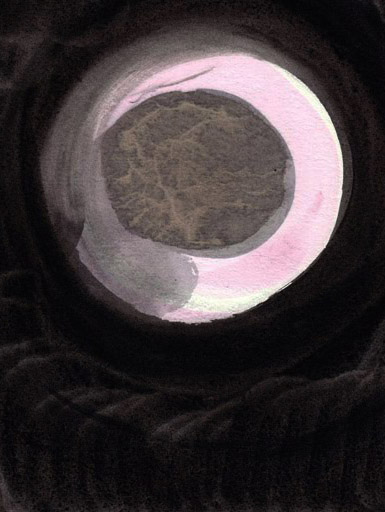Archive for 2010
Judith Albert
Sunday, November 21st, 2010Barbara Ellmerer
Friday, November 19th, 2010Now complete: Marcus Steinweg: A note on power
Thursday, November 18th, 2010Nun vollständig: Marcus Steinweg: Notiz zur Kraft
Thursday, November 18th, 2010Marcus Steinweg: A note on power
Wednesday, November 17th, 2010It is normal for a Subject to go beyond normal relations. That is the essence of Kant’s formula of metaphysics as a “natural predisposition” (12) . One can also say: unnatural as natural or abnormal as normal. We move in the sphere of what is “human” but we are talking about a humanity that does not exclude the inhuman. On the contrary, it is open to the inconsistency not only of “humanisms” but of all ideas and concepts that aspire to win over the self of the human being as against what he supposes to be the outside (or inauthentic), be it his animality with all conceivable semantic connotations, be it his tendency to strain himself to the limit, bringing himself in touch with his (non-external) exterior. The Subject apparently exists only as a hyperbolic animal. Always and everywhere the individual will reach out beyond himself. (13) He is not satisfied with what is possible. He wants the impossible and so creates new possibilities. He resists being fenced in by established concepts and realities. He overshoots his objectivity. Existential philosophers since Kierkegaard have insisted that what is real in a Subject defines a force that cannot be reduced to abstract concepts. Philosophy was never anything but the attempt to attach names to the nameless by using the tools of an experience compromised for the name. Provided, of course, that one is not able to “give a name immediately to an experience – or else it would be no experience at all!” (14)
(12) Immanuel Kant, Prolegomena zu einer jeden künftigen Metaphysik, die als Wissenschaft wird auftreten können, § 57, S. 353 (Orig.), Hamburg 1957, S. 119.
(13) Hierzu hat Sloterdijk bemerkenswerte Untersuchungen vorgelegt: Peter Sloterdijk, Nicht gerettet. Versuche nach Heidegger, Frankfurt a. M. 2001, S. 255-274.
(14) Heiner Müller, Schriften, Werke 8, a.a.O., S. 257.
Complete text will be published soon at: Note on power
Marcus Steinweg: Notiz zur Kraft
Wednesday, November 17th, 2010Es gehört zur Normalität des Subjekts, die normalen Verhältnisse zu überschreiten. Das ist der Sinn von Kants Formel von der Metaphysik als „Naturanlage“. (12) Man kann auch sagen: Widernatürlichkeit als Natürlichkeit oder Anormalität als Normalität. Wir bewegen uns im Bezirk des „Menschlichen“, aber es handelt sich um ein Menschliches, das das Unmenschliche nicht ausschließt. Es hält im Gegenteil die Öffnung auf die Inkonsistenz nicht nur der „Humanismen“, sondern aller Ideen und Konzepte offen, die das Eigene des Menschen in der Abgrenzung zum ihm vermeintlich Äußerlichen (oder Uneigentlichen) zu gewinnen trachten, sei es seine Animalität mit allen denkbaren semantischen Konnotationen, sei es seine Tendenz zur aggressiven Selbststrapazierung, die es in Fühlung mit seinem (nicht-äußerlichen) Außen bringt. Offenbar gibt es das Subjekt nur als hyperbolisches Tier. Immer und überall greift der Mensch über sich hinaus. (13) Er gibt sich nicht mit dem Möglichen zufrieden. Er will das Unmögliche und erschafft so neue Möglichkeiten. Er widersteht seiner Einfriedung in etablierte Begriffe und Realitäten. Er schießt über seine Objektivität hinaus. Die Existenzphilosophien haben seit Kierkegaard darauf insistiert, dass das Reale des Subjekts eine auf abstrakte Konzepte irreduzible Kraft markiert. Philosophie war nie etwas anderes als der Versuch, dem Begrifflosen Begriffe anzumessen, mit den Mitteln einer den Begriff kompromittierenden Erfahrung, sofern man, wenn man eine Erfahrung macht, sie „nicht sofort auf den Begriff bringen [kann] – sonst wäre es gar keine!“ (14)
(12) Immanuel Kant, Prolegomena zu einer jeden künftigen Metaphysik, die als Wissenschaft wird auftreten können, § 57, S. 353 (Orig.), Hamburg 1957, S. 119.
(13) Hierzu hat Sloterdijk bemerkenswerte Untersuchungen vorgelegt: Peter Sloterdijk, Nicht gerettet. Versuche nach Heidegger, Frankfurt a. M. 2001, S. 255-274.
(14) Heiner Müller, Schriften, Werke 8, a.a.O., S. 257.
Vollständiger Text erscheint alsbald unter: Notiz zur Kraft
Barbara Ellmerer
Tuesday, November 16th, 2010Marcus Steinweg: A note on power
Tuesday, November 16th, 2010The topoi of ignorance and the unconscious (by no means identical: the unconscious implies knowledge that I am unaware of, while the ignorance, that Nietzsche speaks of should be the object of not only my knowledge but also my will) evoke a certain dispossession with regard to the Subject, a kind of ontological poverty that defines it as naked life or empty cogito; in brief, as a Subject without subjectivity. While the Subject of idealism defines itself by being part of a universal we-subjectivity and the Subject of Christianity understands itself to be the ens creatum of a creator, the Subject without subjectivity is an original decapitated Subject. Open to the top and the bottom, without telos, without foundation. Its hyperbolism defines this openness, which allows it to border on the infinite. Philosophy confronts itself in all its historical moments with the infinite parts of the Subject to ultimately (in the metaphysical critique phase) hold out the prospect of a notion of enlightenment enlarged to include this infinity: a new enlightenment, as Nietzsche says, a new Subject and a different rationality that recognise their hyperbolism, or quite simply their blind power.
Complete text will be published at: Note on power




